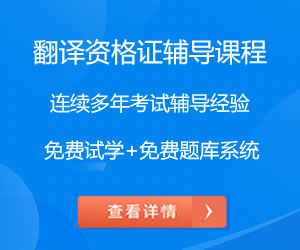"No," said the driver, looking in his rearview mirror at traffic and me.
"Lets go across the park," I said. "I just robbed the bank there. I got $25,000."
"$25,000?" he asked.
"Yeah, you think it was wrong to take it?"
"No, man, I work 8 hours and I dont make almost $70. If I can do that, I do it too."
As we approached 86th and Lexington, I pointed to the Chemical Bank.
"Hey, theres another bank," I said, "could you wait here a minute while I go inside?"
"No, I cant wait. Pay me now." His reluctance may have had something to do with money — taxi drivers think the rate for waiting time is too low — but I think he wanted me to learn that even a bank robber cant expect unconditional support.
41. From the Ghanaian drivers response, we can infer that ______ 。
A) he was indifferent to the killing
B) he was afraid of the author
C) he looked down upon the author
D) he thought the author was crazy
42. Why did the Pakistani driver refuse to take the author to the middle of the George Washington Bridge?
A) Because he didnt want to help the author get over his career crisis.
B) Because he wanted to go home and relax.
C) Because it was far away from his home.
D) Because he suspected that the author was going to commit suicide.
43. What is authors interpretation of the drivers reluctance "to wait outside the Chemical bank"?
A) The driver thought that the rate for waiting time was too low.
B) The driver thought it wrong to support a taxi rider unconditionally.
C) The driver was frightened and wanted to leave him as soon as possible.
D) The driver wanted to go home and relax.
44. Which of the following statements is true about New York taxi drivers?
